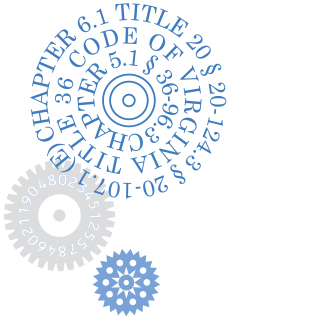JUSTICE GAP
Many people in the United States assume that the right to an appointed attorney for low-income people applies in every legal matter. The truth is that the right to a free attorney only applies to those accused of crimes. Someone who is low-income and facing a civil legal matter is simply not entitled to any representation whatsoever, and that person must either confront the legal matter alone or struggle to afford the cost of hiring a private attorney.
We call the divide between people who can afford an attorney and those who cannot The Justice Gap. Did you know that although there is one private attorney for every 346 Virginians, there is only one legal aid attorney for every 7,000 poor Virginians? That gap gets wider every year as more people fall below the poverty line. Most people feel uncomfortable at the prospect of poor people going into court alone and having the outcome of the case be determined not by the law or the facts but by the fact that one side could afford an attorney and one could not. If we really believe in “justice for all” and not just for those who can afford an attorney, we should advocate for more access to justice.


